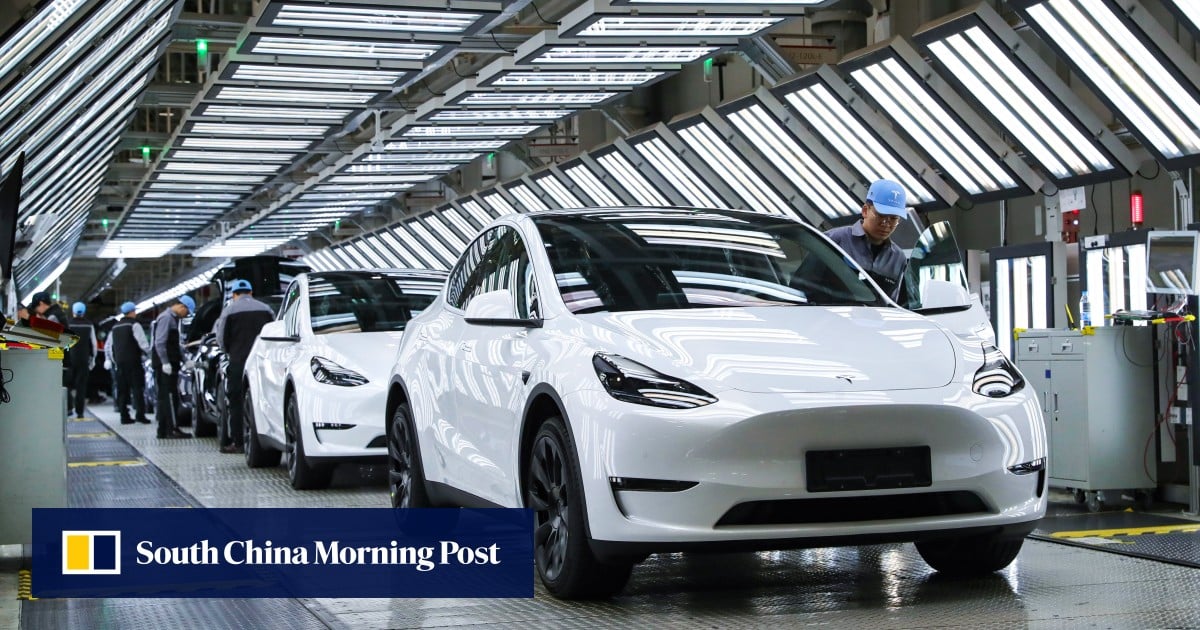


The CAAM assessment that began in November is voluntary, and Tesla is among the first batch of carmakers to received the endorsement, along with BYD, Li Auto, Nio, Hozon and Lotus.
“The result of the review will give Tesla car owners and other fans of its cars a lot of confidence in driving them on the streets of China,” said Chen Jinzhu, CEO of consultancy Shanghai Mingliang Auto Service. “Since the CAAM is a government-backed auto industry association, the review certainly will have an influence on relevant authorities’ policymaking.”
The endorsement also bodes well for the approval of Tesla’s Full Self-Driving (FSD) system, its autonomous driving software, in China.
During his meeting with Musk on Sunday, Premier Li said Tesla’s operations in China represented a successful example of an economic tie-up between China and the US as he encouraged more cooperation between the two countries.
Grace Tao, Tesla’s vice-president of external relations in China, wrote a commentary piece in the official People’s Daily newspaper on Friday saying autonomous driving is a key growth driver for the country’s EV sector and arguing that the technology will hatch new business models such as robotaxis, a vision that Musk has embraced.
In the US, Tesla charges US$8,000 to buy its FSD software, or US$99 a month for a subscription.
“This is a watershed moment for Musk as well as Beijing at a time that Tesla has faced massive domestic EV competition in China along with softer demand,” Wedbush Securities said in a research note on Sunday evening. “While the long-term valuation story at Tesla hinges on FSD and autonomous, a key missing piece in that puzzle is Tesla making FSD available in China which now appears on the doorstep.”
Tesla will be able to deploy its autonomous driving services on the basis of “lane-level navigation” and mapping provided by the Beijing-based internet giant, Bloomberg’s report said, citing unidentified sources.
In April of 2021 the company faced a social media backlash from Chinese customers after a woman in a T-shirt emblazoned with the words “brake malfunction” and a Tesla logo jumped on top of a Tesla car on display at the Shanghai Auto Show, to draw attention to a crash involving her Model 3 she blamed on the company.
Tesla later released the data log of the specific Model 3 to the owner, bowing to pressure from the market regulator.
The US carmaker did not attend the Shanghai car show last year and is absent from the Auto China Show in Beijing that started last Thursday because of worries about similar incidents, according to people with knowledge of the matter.
Beijing has restricted the use of Teslas by military staff and employees of key state-owned companies because of security concerns since 2021. The Chinese-made Model 3s and Model Ys are also barred from accessing some areas, such as airports.
China is now the second-largest market for Tesla, with 603,664 deliveries last year, trailing only the US where the company handed 654,888 cars to American customers last year, up by a quarter from 2022.